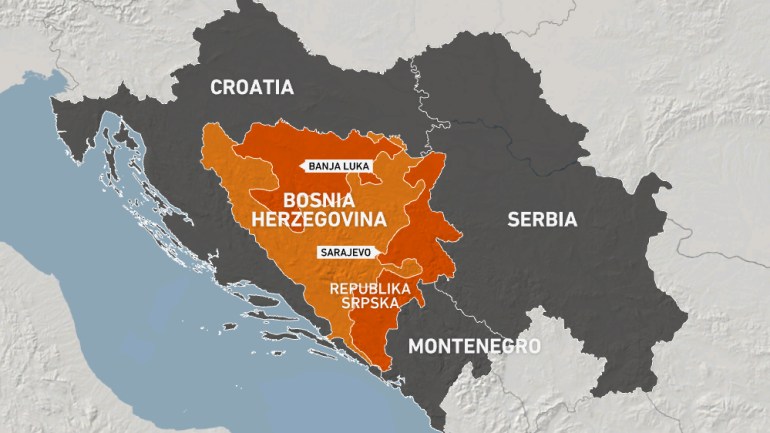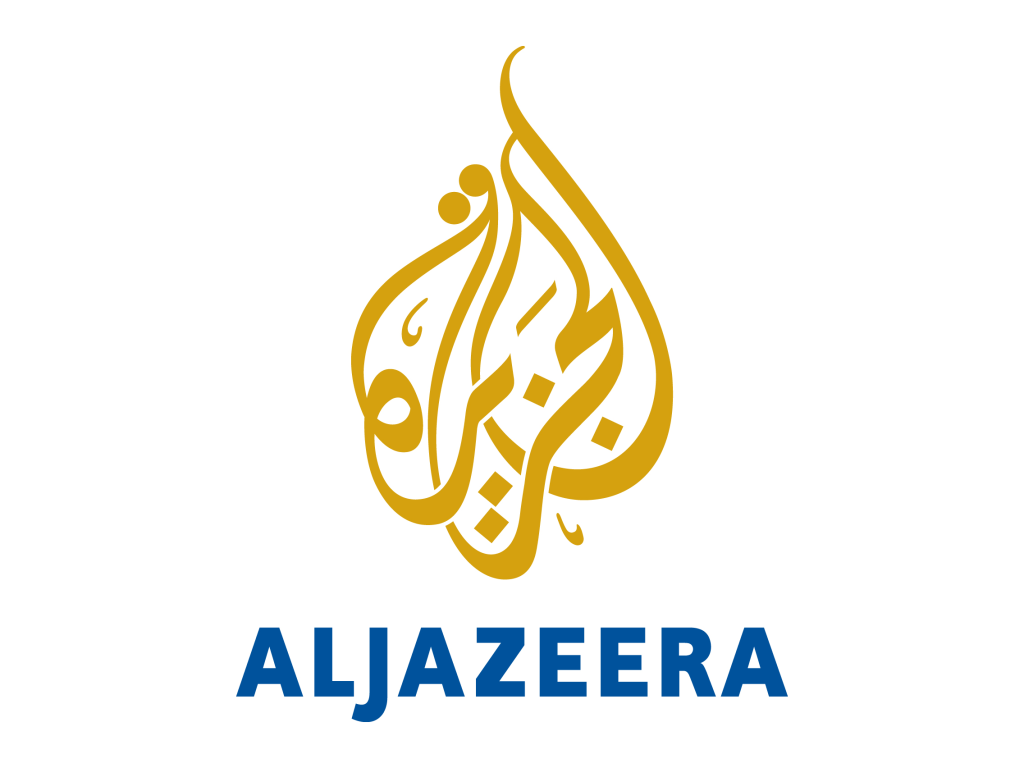ARTICLE AD
Brussels is pushing to accelerate EU expansion in Western Balkans as it eyes growing Russian and Chinese influence.
Published On 12 Mar 2024
The European Commission is set to recommend that the European Union open accession talks with Bosnia and Herzegovina.
President Ursula von der Leyen said on Tuesday that the EU’s executive arm will ask member states to open negotiations with Sarajevo, despite lingering ethnic divisions in the Western Balkan country, as the West eyes the growing influence of Russia and China in the region.
Bosnia is among six Western Balkan nations – alongside Albania, Serbia, Kosovo (a semi-autonomous territory and self-declared republic), Montenegro and North Macedonia – that are at different stages of the EU accession process.
Despite early efforts to bring the sextet into the bloc to try to help consign the region’s wars and crises in the 1990s to history, impatience has been growing, with progress stalled for years.
However, Russia’s invasion of Ukraine, and inroads being made by Moscow and Beijing in gaining influence, are helping to focus some minds in the West, pushing EU officials to accelerate the process.
“We have realised that it is not enough to just wait for the Western Balkans to move closer to us,” von der Leyen told the European Parliament. “It is not enough to say that the door is open. We must also take responsibility, and support their path towards our union in any possible way.”
Ethnic division
EU leaders are expected to discuss the recommendation at a summit in Brussels next week. There is no guarantee that member states will endorse it as Milorad Dodik, a pro-Russian, separatist Bosnian Serb leader, continues to undermine the presidency and other political functions in the country.
Bosnia has been riven by ethnic divisions even decades after the war that tore it apart in the 1990s. In December, Dodik said he intended to keep weakening the country to the point where it falls apart.
Bosnia was granted EU candidate status in 2022. To join the bloc, countries must go through a lengthy process to align laws and standards and show that their institutions and economies meet democratic norms.
Von der Leyen admitted that Bosnia needs “more progress”, but insisted that it has made “impressive steps”.
“More progress has been achieved in just over a year than in over a decade,” she said. “First, Bosnia and Herzegovina is now fully aligned with our foreign and security policy, which is crucial in these times of geopolitical turmoil.”
She also praised the country for its efforts in fighting money laundering, the financing of terrorism and improving the control of migration flows.
“The country is showing that it can deliver on the membership criteria, and on its citizens’ aspiration to be part of our family,” she said. “The message coming from Bosnia and Herzegovina is clear. So our message must be clear too. The future of Bosnia and Herzegovina lies in our union.”
 Ethnic relations within Bosnia and Herzegovina remain tense [Al Jazeera]
Ethnic relations within Bosnia and Herzegovina remain tense [Al Jazeera]
Bosnia is perhaps the most fragile of the Balkan countries. Ethnic tensions there have persisted long after the end of the 1992-95 interethnic war that killed more than 100,000 people and displaced millions.

 9 months ago
53
9 months ago
53 
